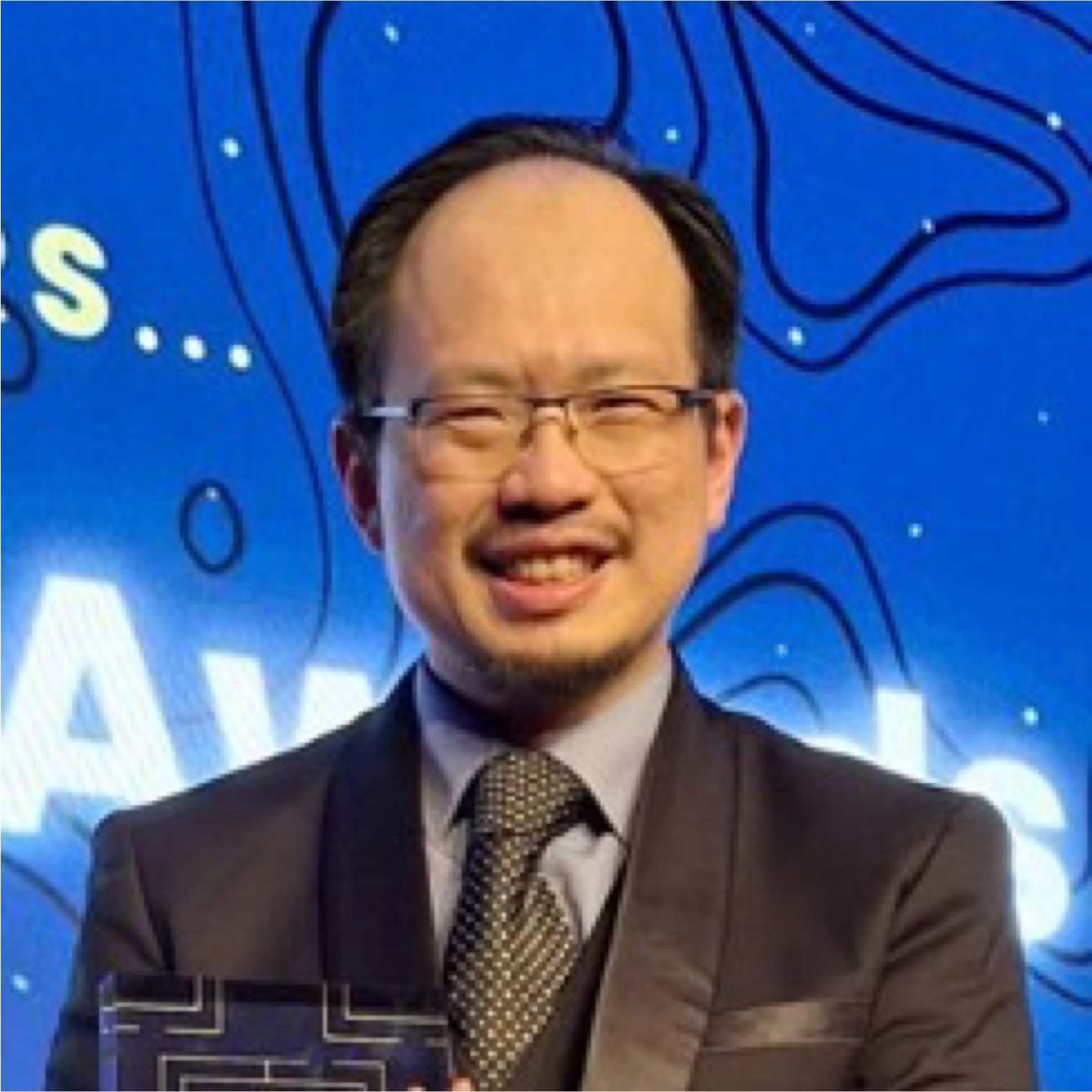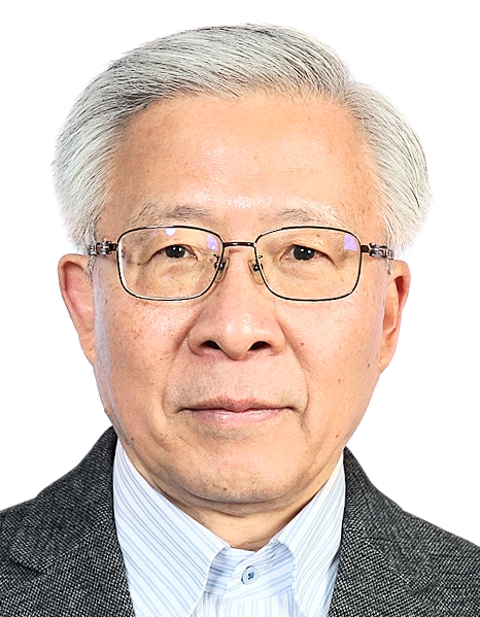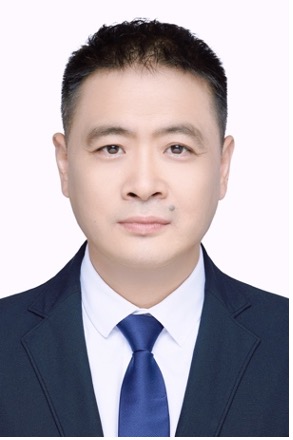Keynotes
Cache Distribution from LEO Satellites

Noriaki Kamiyama, Professor
Ritsumeikan University, Japan
Abstract: Using LEO (Low Earth Orbit) satellites is an effective approach to provide network connectivity in areas where terrestrial infrastructure cannot be deployed. LEO satellites offer wide coverage, low power consumption, low latency, and high-capacity communication. However, LEO satellites have a drawback: low uplink throughput, which becomes a bottleneck when delivering large-size content from ground-based servers via LEO satellites. To address this problem, deploying caches on LEO satellites is an effective solution, allowing content delivery directly from the satellite caches. In this talk, I will explain issues on cache distribution from LEO satellite and approaches to solve these issues.
Biography: Noriaki Kamiyama received his M.E. and Ph.D. degrees in communications engineering from Osaka University in 1994 and 1996, respectively. From 1996 to 1997, he was a visiting researcher at the University of Southern California. He joined NTT Multimedia Network Laboratories in 1997, later working at NTT Network Technology Laboratories, where he received several Director’s Awards for his contributions. From 2013 to 2014, he served as an invited associate professor at Osaka University, and as an invited professor in 2015. He became a professor at Fukuoka University in 2017 and has been a professor at Ritsumeikan University since 2021.
He was the Chair of the IEICE Technical Committee on Information-Centric Networking (ICN) (2023–2025), and he has been the Vice Chair of the IEICE Technical Committee on Complex Communication Sciences. He has been an Associate Editor for IEEE Transactions on Network and Service Management (TNSM) since March 2020. He serves as Vice Chair of the IEEE COM-19 Tokyo Joint Chapter (since November 2021), and as Vice Editor-in-Chief of the IEICE Communications Society Editorial Board (since June 2024).
He has received the Best Paper Awards at IFIP/IEEE IM 2013, WTC 2014, and ICOIN 2020. He also received multiple research and paper awards from IEICE, including the IEICE Communications Society Distinguished Contributions Award. His research interests include traffic measurement, traffic engineering, network security, LEO satellite networks, and quantum networks. He is a member of IEEE, ACM, and IEICE.
Federated Learning-Driven O-RAN Security for 6G Networks and Comprehensive Analysis

Victor Chang, Professor
Aston University, United Kingdom
Abstract: The cybersecurity issues of 6G networks and Open Radio Access Networks (O-RAN) are challenging for traditional centralized defense techniques to handle. This keynote introduces a UK-Japan partnership that combines neuromorphic AI, federated learning, and O-RAN edge deployment for near-real-time, privacy-preserving malware detection. We address privacy issues, data heterogeneity, and communication delay in federated learning with our new FedAvgVChang algorithm. In running 20 rounds, the system achieves 96.8% detection accuracy, which is 38% faster than normal federated averaging. It is tested on the CIC IoT 2023 dataset and a synthetic IoT dataset that mimics CIC IoT 2023 with simulated attack scenarios (e.g., Mirai, DDoS). On normal hardware, it achieves a median inference delay of 0.15 seconds; on neuromorphic platforms (emulated Loihi), it can achieve inference times of less than 0.8 seconds. Strong detection across a variety of attack vectors is demonstrated by performance indicators such as a global F1-score of 0.968, AUC of 0.974, precision of 0.966, and recall of 0.970. This work validates the viability of scalable, privacy-conscious threat detection in synthetic edge and O-RAN sandbox scenarios. The presentation covers system design, performance metrics, collaborative roadmap, and future goals for federated neuromorphic security in forthcoming global 6G ecosystems.
Biography: Professor Victor Chang stands as an internationally recognized authority in applied AI, data science, cybersecurity, and cloud computing. His distinguished career spans groundbreaking research and extensive global collaboration. Currently positioned as Professor of Business Analytics at Aston University, he specializes in AI, Data Analytics and Cybersecurity while steering multiple strategic initiatives focused on creating secure, responsible, and sustainable digital transformation.
Victor's expertise seamlessly connects academic innovation with practical implementation. His influence extends across five continents through more than 60 invited keynote presentations at premier conferences, including IEEE Services, Cloud, Big Data, and other flagship events. His research network encompasses over 100 collaborating institutions worldwide, creating a truly global impact.
The practical applications of Victor's work demonstrate significant effectiveness, with his applied AI and data solutions achieving exceptional accuracy rates exceeding 90+% in critical areas, such as disease diagnosis (92%) and malware detection (99%), across the healthcare, finance, and cybersecurity sectors. His industry-academic background has enabled him to lead multi-million-pound research projects, fostering partnerships throughout the UK, Europe, Asia, and the US.
Victor's technical innovation and leadership have produced several groundbreaking innovations, including the Cloud Computing Adoption Framework (CCAF), an advanced Deep-IFS security system, federated learning architectures for 6G networks, and sophisticated IoMT (Internet of Medical Things) platforms. His scholarly contributions include over 250 peer-reviewed publications, complemented by editorial responsibilities at leading journals. He's the Winner of the Inspirational Individual of the Year 2024, UK National IT Award. He has won the Data Leader of the Year 2025 (In-House), British Data Awards. He won the Information Technology 2025 Award, Business Awards UK, Cybersecurity Initiative of the Year 2025.
His professional recognition includes Fellowships from prestigious institutions such as the BCS, IET, RSA, IC (CMI), IoL, IDM, RSS, APM, and ORS, alongside Senior Fellowship of the HEA and Honorary Fellowship of the IoA. Victor actively shapes national and international strategies in AI, data science, and cybersecurity. His passion for public engagement, digital trust, and inclusive innovation continues to shape policy development, industry practices, and the development of emerging talent in the AI and cybersecurity fields.
Testing-Based Formal Verification for Software Dependability

Shaoying Liu, Professor
Software Engineering Institute of East China Normal University, China
Abstract: Software dependability encompasses five critical properties: reliability, safety, integrity, availability, and maintainability. Ensuring these attributes throughout the software engineering process remains a significant and ongoing challenge. In this talk, I will begin by briefly outlining a general framework for developing dependable software. I will then focus on an advanced technique known as Testing-Based Formal Verification (TBFV), which integrates specification-based testing with formal methods to verify program correctness. TBFV is characterized by its ability to automatically verify the correctness of all program paths explored during testing, while also having the potential to uncover previously untested paths. This dual capability supports both validation and verification, enhancing the overall assurance of software quality. I will explain the core principles of TBFV, specific techniques it employs for fault prevention, validation, and verification, as well as the key challenges associated with its practical implementation. When fully realized, TBFV is expected to significantly reduce testing time and cost, and substantially improve software dependability.
Biography: Shaoying Liu is a Professor at Software Engineering Institute of East China Normal University, China, IEEE Fellow, BCS Fellow, and AAIA Fellow. He received his Ph.D. in Computer Science from the University of Manchester, U.K., in 1992, and has held research and teaching positions at ten universities in China, the United Kingdom, and Japan, respectively. His research interests include Formal Engineering Methods, Specification-based Program Inspection and Testing, Testing-Based Formal Verification (TBFV), Human Machine Pair Programming (HMPP), and Dependable Computing. Liu is a pioneer and leading researcher in Formal Engineering Methods for Software Development. He founded the ICFEM conference in 1997, SOFL+MVSL workshop in 2012, and SFPVV symposium in 2024, respectively. He designed the SOFL (Structured Object-Oriented Formal Language) specification language and method, authored two books titled "Formal Engineering for Industrial Software Development" and “Agile SOFL: Agile Formal Engineering Method”, respectively, both published by Springer, more than 15 edited books, and over 300 papers in refereed journals and international conferences. He has received many awards, including “Special Achievement Award” from IEEE DSA 2024, 2022 and 2020 “Distinguished Research Awards” from IPSJ/SIGSE respectively, the “20 Year ICFEM Impact Award” from ICFEM 2018, “IEEE Reliability Society Japan Joint Chapter 2016 Best Paper Award”, and “Outstanding Paper Award’’ from ICECCS’96. In recent years, he has served as the General/Conference Chair of several international conferences, including ICFEM 2024, WSSE 2025, and SFPVV 2025.
Cyber-Physical-Social Intelligence

Laurence Tianruo Yang, Professor
St Francis Xavier University, Canada and Zhengzhou University, China
Abstract: The booming growth and rapid development in embedded systems, wireless communications, sensing techniques and emerging support for cloud computing and social networks have enabled researchers and practitioners to create a wide variety of Cyber-Physical-Social Systems (CPSS) that reason intelligently, act autonomously, and respond to the users’ needs in a context and situation-aware manner, namely Cyber-Physical-Social Intelligence. It is the integration of computation, communication and control with the physical world, human knowledge and sociocultural elements. It is a novel emerging computing paradigm and has attracted wide concerns from both industry and academia in recent years.
This talk will present our latest research on Cyber-Physical-Social Intelligence. Corresponding case studies in some typical applications will be shown to demonstrate the feasibility and flexibility.
Biography: Laurence T. Yang got his BE in Computer Science and Technology and BSc in Applied Physics both from Tsinghua University, China and Ph.D in Computer Science from University of Victoria, Canada. He is the Academic Vice-President and Dean of School of Computer Science and Artificial Intelligence, Zhengzhou University, China as well as the W.F James Research Chair of Department of Computer Science, St Francis Xavier University, Canada. His research includes Cyber-Physical-Social Intelligence. He has published 600+ papers in the above area on top IEEE/ACM Transactions with total citations of 45000+ and H-index of 108 including 8 and 44 papers as top 0.1% and top 1% highly cited ESI papers, respectively.
His recent honors and awards include the member of US National Academy of Artificial Intelligence (2025), a foreign member of Russian Academy of Engineering (2024) and a member of Academia Europaea, the Academy of Europe (2021), the John B. Stirling Medal (2021) from Engineering Institute of Canada, IEEE Sensor Council Technical Achievement Award (2020), IEEE Canada C. C. Gotlieb Computer Medal (2020), Clarivate Analytics (Web of Science Group) Highly Cited Researcher (2019, 2020, 2022, 2023, 2024, 2025), Fellow of Institution of Engineering and Technology (2020), Fellow of Institute of Electrical and Electronics Engineers (2020), Fellow of Engineering Institute of Canada (2019), Fellow of Canadian Academy of Engineering (2017), etc.